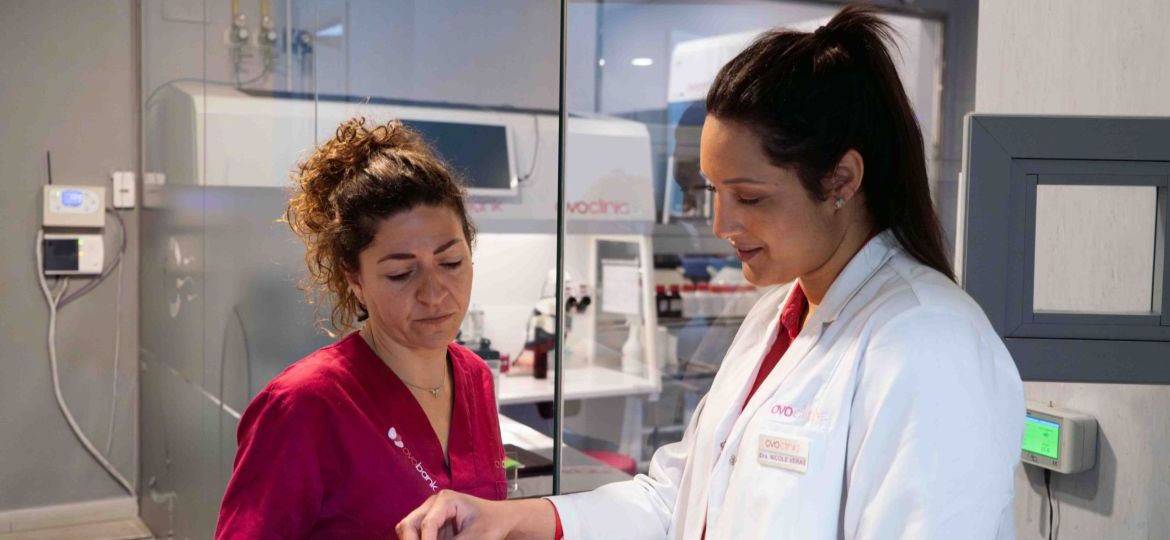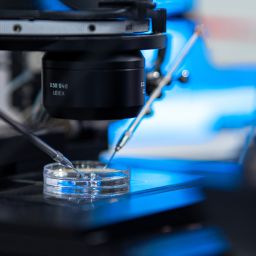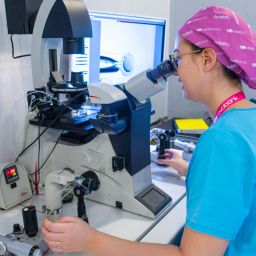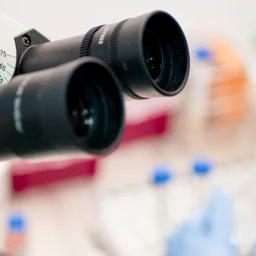
When a woman dreams of becoming a mother and sees that pregnancy does not come, she begins a journey full of questions. Will I be ovulating well? Will it be my partner? Will everything be all right with me? In this whirlwind of doubts, there is a silent protagonist that often goes unnoticed: the thyroid.
That little butterfly-shaped gland in the neck has much more power than we realise. It regulates everything from our metabolism to our energy and, yes, it also directly influences fertility. Many women don’t know it, but an imbalance in the thyroid may be one of the reasons why it’s so hard to get pregnant or to stay pregnant.
This article is for you: to inform, accompany and help you understand how thyroid, stress and female fertility are deeply connected.
Female fertility: a delicate balance
A woman’s body is wise, but also sensitive. Fertility depends on many pieces fitting together at just the right time: hormones in balance, regular ovulation, a prepared uterus, unobstructed tubes… and a hormonal system that works like clockwork.
This is where the thyroid comes into play. This gland produces the hormones T3 and T4, which regulate metabolism, but is also involved in the menstrual cycle, ovulation, embryo implantation and the development of pregnancy, especially in its early stages (Krassas, Poppe, & Glinoer, 2010).
When the thyroid is not functioning properly, this entire system can become disordered. Most frustratingly, it sometimes gives no clear symptoms.
Causes of Hypothyroidism
Hypothyroidism is when your thyroid doesn’t produce enough hormone. It can make us feel more tired, cold, with dry skin or gain weight for no reason. But it can also lead to irregular menstrual cycles, lack of ovulation and difficulty conceiving (Negro & Stagnaro-Green, 2014).
A common cause of hypothyroidism in young women is Hashimoto’s thyroiditis, an autoimmune disease. Complicating matters is that it is often mistaken for other disorders or simple exhaustion. If untreated hypothyroidism is present, it also increases the risk of miscarriage, especially in the first trimester (Alexander et al., 2017).
Hyperthyroidism and female infertility
At the opposite extreme, hyperthyroidism occurs when the thyroid is overworked. The body speeds up, and that may seem like a good sign (more energy, less weight), but it’s not. Women with hyperthyroidism often have irregular periods, disordered ovulation, and increased risk of miscarriage or premature birth (De Leo, Lee, & Braverman, 2016).
One of its main causes is Graves’ disease, which is also autoimmune. In women of childbearing age, its diagnosis is especially important if childbearing is desired.
Stress: an invisible factor impacting thyroid and fertility
We live in a society where stress has become part of the routine. Yet its impact on our hormonal health is profound and often underestimated.
Chronic stress activates the hypothalamic-pituitary-adrenal (HPA) axis, leading to a sustained release of the stress hormone cortisol. This increase in cortisol can interfere with the hypothalamic-pituitary-thyroid (HPT) axis, which regulates thyroid function, and the hypothalamic-pituitary-gonadal (HPG) axis, which regulates sex hormones (Chrousos & Elenkov, 2006).
In addition, stress can increase pro-inflammatory cytokines, which not only reduce TSH (thyroid-stimulating hormone) production, but also hinder the conversion of T4 to T3, the active form of thyroid hormone (Mikoś, 2014).
In genetically predisposed women, stress can trigger autoimmune diseases such as Hashimoto’s thyroiditis or Graves’ disease, further affecting thyroid function and thus fertility (Tsatsoulis, 2006).
What are the symptoms of hypothyroidism?
Not all women have obvious symptoms of a thyroid disorder. Sometimes the body gives only subtle signs, such as:
- Very long, very short or absent menstrual cycles.
- Difficulty ovulating.
- Extreme unexplained tiredness.
- Sudden changes in weight.
- Loss of hair or dry skin.
- Feelings of anxiety or sadness for no clear reason.
- Unsuccessful attempts at pregnancy for more than 6 to 12 months.
If any of this resonates with you, talk to your doctor and ask for a blood test that includes TSH, T3 and T4. It is a simple test, but it can give you many answers (Glinoer, 1997).
Can I get pregnant with hypothyroidism?
The good news is that thyroid disorders are treatable, and with good medical management, most women can achieve a healthy pregnancy.
- In hypothyroidism, treatment is usually with levothyroxine, a synthetic thyroid hormone taken by mouth. It is safe even during pregnancy and improves fertility rates.
- In hyperthyroidism, treatment may include drugs that decrease hormone production, and in some cases surgery.
However, radioactive iodine is not used if pregnancy is planned in the short term (De Leo et al., 2016).
A key issue is to go into pregnancy with a well-controlled thyroid. Thyroid hormones are essential for the baby’s brain development, especially in the first weeks, when it is still completely dependent on the mother (Medici et al., 2015).
Fertility beyond the thyroid: body, mind and emotions
Although the focus here is on the thyroid, it is worth remembering that female fertility is not just about biology. Stress, anxiety, self-demand, our relationship with our bodies and our emotional history also play a role.
Seeking pregnancy can be a beautiful, but also a painful experience. Sometimes we find ourselves surrounded by tests, doctors, and expectations, and we forget that we are more than a diagnosis. If you are going through this journey, you are not alone. Seeking emotional support, talking to other women, or simply allowing yourself to rest is also part of the process.
Practical tips for taking care of your fertility and your thyroid
- Get regular check-ups, especially if you have a family history of thyroid problems or difficulty conceiving.
- Order comprehensive hormone tests, including TSH, T3, T4 and thyroid antibodies if you are planning a pregnancy.
- Maintain a balanced lifestyle: good nutrition, movement, rest and stress management.
- Don’t minimise your symptoms: if something in your body has changed and you don’t know why, listen to it.
- Trust your process: with proper treatment and patience, many women are able to get pregnant even with thyroid conditions.
Conclusion
Your thyroid may be small, but its impact on your fertility is huge. Understanding its role, paying attention to it and acting in time can make the difference between uncertainty and hope.
Remember: you are not failing, you are not alone, and all is not lost. You just need information, support and an approach that sees you as a whole: as body, mind and desire.
References
- Alexander, E. K., Pearce, E. N., Brent, G. A., Brown, R. S., Chen, H., Dosiou, C., … & Sullivan, S. (2017). 2017 Guidelines of the American Thyroid Association for the diagnosis and management of thyroid disease during pregnancy and the postpartum. Thyroid, 27(3), 315–389. https://doi.org/10.1089/thy.2016.0457
- Chrousos, G. P., & Elenkov, I. J. (2006). Interactions of the endocrine and immune systems in autoimmune thyroid disease. Trends in Endocrinology & Metabolism, 17(2), 55–61. https://doi.org/10.1016/j.tem.2006.01.001
- De Leo, S., Lee, S. Y., & Braverman, L. E. (2016). Hyperthyroidism. The Lancet, 388(10047), 906–918. https://doi.org/10.1016/S0140-6736(16)00278-6
- Glinoer, D. (1997). The regulation of thyroid function in pregnancy: pathways of endocrine adaptation from physiology to pathology. Endocrine Reviews, 18(3), 404–433. https://doi.org/10.1210/edrv.18.3.0300
- Krassas, G. E., Poppe, K., & Glinoer, D. (2010). Thyroid function and human reproductive health. Endocrine Reviews, 31(5), 702–755. https://doi.org/10.1210/er.2009-0041
- Medici, M., Korevaar, T. I., Schalekamp-Timmermans, S., Gaillard, R., de Rijke, Y. B., Visser, W. E., … & Peeters, R. P. (2015). Maternal early-pregnancy thyroid function is associated with subsequent fetal growth and birth weight. The Journal of Clinical Endocrinology & Metabolism, 100(10), 3895–3903. https://doi.org/10.









